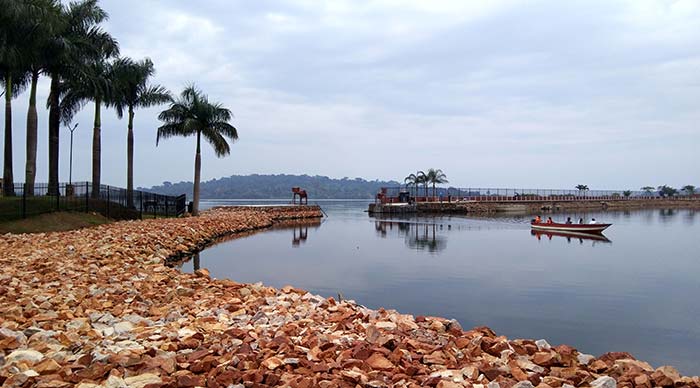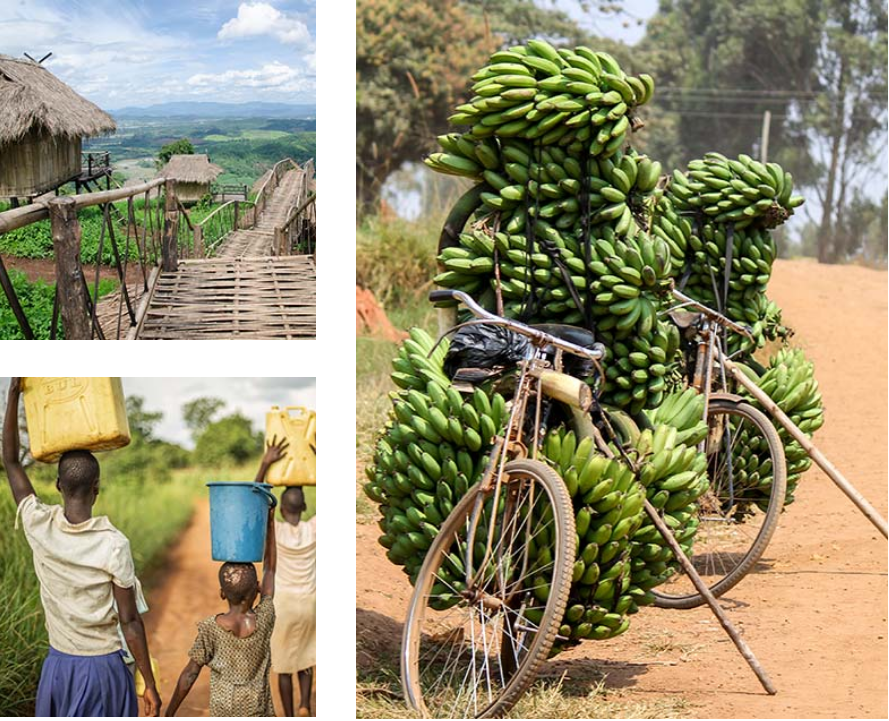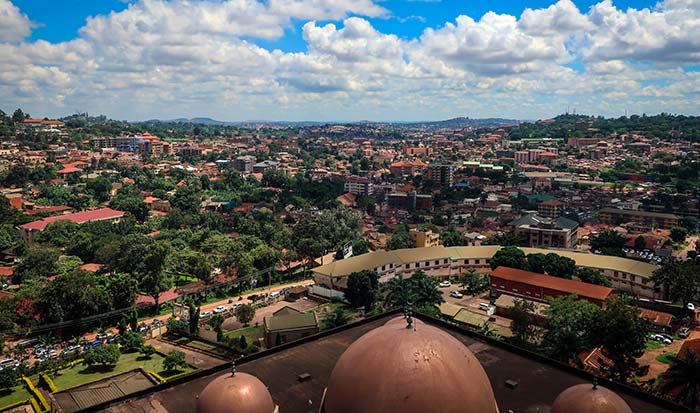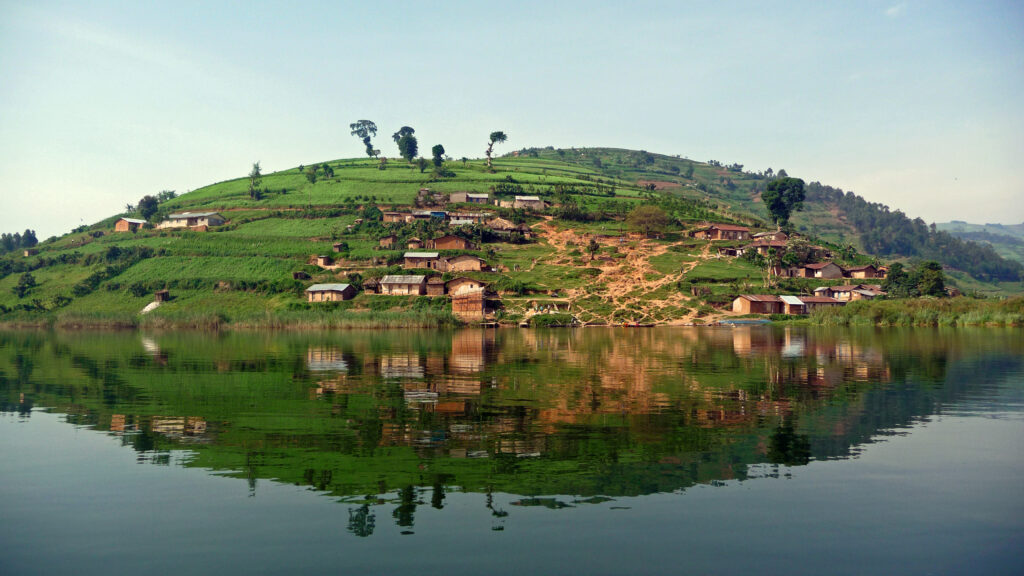This website uses cookies so that we can provide you with the best user experience possible. Cookie information is stored in your browser and performs functions such as recognising you when you return to our website and helping our team to understand which sections of the website you find most interesting and useful.
Uganda Travel Advice

Getting to Uganda
Travel to Uganda, officially named the Republic of Uganda, has become more affordable and easier over the years. Situated in the heart of the Great Lakes Region, Uganda is surrounded by three lakes – Lake Albert, Lake Edward and Lake Victoria. The country shares borders with Kenya, South Sudan, Rwanda, Tanzania and the Democratic Republic of the Congo.
- London to Kampala is about a 10-hour flight
- Los Angeles to Kampala takes around 22.5 hours
- Cape Town to Kampala takes around 5 hours
- Sydney to Kampala is about a 16-hour flight
- New York to Kampala takes approximately 16 hours

Main airport in Uganda
Geography & landscape of Uganda
Uganda lies in the centre of Africa’s Great Rift Valley. Its landscape consists mainly of flat, high plateaus, surrounded by rolling hills and encroaching low-lying mountains. The central region of Uganda is home to tropical forests and swaying grasslands, while the borders are dominated by mountainous regions such as the Rwenzori Mountains and Mount Elgon. Explore the semi-deserts, the arid plains, the lush tea plantations and rolling savannahs of this unique African country.


Culture, religion and etiquette
In Uganda, it’s common to greet each other with a simple handshake. People of the same gender often hold hands as a symbol of their friendship. Ugandans are fond of small talk when greeting and tend to communicate indirectly rather than being upfront about issues. As for clothing, it isn’t acceptable in Uganda to wear revealing clothes – that also means that women should steer clear of shorts and short skirts. Ugandan men usually wear shorts as a child and graduate to trousers as an adult.
Uganda is a religiously diverse country with the majority of people following Christianity. 33% of the population in Uganda identify as Roman Catholic, 33% as protestant and 16% as Muslim. The rest of the population believe in various local religions, many of which have a focus on spirits, the deceased and witchcraft.
Languages spoken in Uganda
Uganda is a multilingual country with over forty native languages in three groups – Bantu, Central Sudanic and Nilotic. The official languages of Uganda are English and Swahili. Most literate people in Uganda speak English, being spoken throughout their school year as well as being widely spoken in politics. Around 4 million people, most of which are in the Buganda region, also speak Luganda. Even though Swahili is the country’s second official language, more people speak Luganda than Swahili.
Capital city of Uganda

Kampala
The capital city of Uganda is Kampala, resting on a set of seven hills on the shores of the largest lake in Africa – Lake Victoria. Standing on the hills provides you with a picture of evergreen countryside interspersed with red-tiled villas with the bustling city down below and the famous Lake Victoria beyond. Kampala is a modern metropolis scattered with pretty gardens and parks on every street – it’s no wonder they call it the greenest city in Africa. Visit the Kasubi Tombs, Kibuli Mosque, the Namugongo Martyrs Shrine Namirembe Anglican Cathedral and St. Peter’s Roman Catholic Cathedral.
Visas for Uganda
To enter Uganda, everyone must have a passport with at least six months remaining from the date of entry. Almost all visitors will require a visa to enter Uganda, which can be processed online, beforehand. A visa can only be obtained on arrival if it has been preapproved. To apply for a visa online, visit www.visas.immigration.go.ug.
The following nationalities do not require a visa to enter Uganda: Cyprus, Malta, Angola, Barbuda, Bahamas, Barbados, Belize, Burundi, Comoros, Eritrea, Fiji, Gambia, Ghana, Grenada, Jamaica, Kenya, Lesotho, Madagascar, Malawi, Mauritius, Rwanda, Seychelles, Sierra Leone, Singapore, Solomon Islands, St Vincent and The Grenadines, Tanzania, Tonga, Swaziland, Vanuatu, Zambia and Zimbabwe.
If you are also visiting other countries in Africa, you can obtain an East African Tourist Visa which allows you multiple entries into Uganda, Kenya and Rwanda – this is a much cheaper and simpler way than buying them separately. A single-entry visa costs $50, and an East African tourist e-visa costs $100.
If you are arriving from an endemic area, you will also need to provide a Yellow Fever vaccination certificate, before being allowed to enter Uganda.
Vaccinations & travel health
Malaria is present in Uganda, so we advise travellers to consult their GP for antimalarial medicine for your trip. Dengue and chikungunya are also present in Uganda, so make sure that you are well-stocked with DEET mosquito repellent.
All travellers over the age of nine months will also need to have a yellow fever vaccination – a copy of the certificate will be required for your visa application.
Is it safe to drink tap water in Uganda?
We do not recommend drinking tap water in Uganda – stick to bottled water to be safe. Many villages have water pumps which provide clean water but make sure you check before you use them. There is a risk of cholera in certain parts of the country, so we strongly advise you only to use clean, drinking water and wash your hands often.
Electricity and plugs in Uganda
The plugs and sockets in Uganda are type G, which have three rectangular pins in a triangular shape. The standard voltage in Uganda is 240 V, and the frequency is 50 Hz.
Time zone in Uganda
Western History of Uganda
Uganda has been populated since the dawn of humanity.
Henry Stanley reached Uganda in 1875, followed shortly after by Anglican missionaries. Roman Catholic and Muslim missionaries arrived a few years later. 1888 saw the European powers divided up Africa and gave the British East Africa Company control of Uganda. In 1904, cotton became one of Uganda’s most significant exports, and by 1920, the country was also growing a substantial amount of tea and coffee. The first railway line was constructed in 1929.
In 1962, Uganda gained independence, and Mutesa, the King of Buganda, was appointed as its first president, with Milton Obote serving as prime minister. In 1966, Obote staged a coup and became the dictator. He ruled until 1971 when Idi Amin toppled his regime. Amin was responsible for many acts of torture and murder. His crimes affected over 100,000 people. Amin’s greed led to many being either killed or forced to leave, the economy of Uganda collapsed, and the infrastructure deteriorated.
More Prosperous times
Amin died abroad in 2003.
Following a period of upheaval and the advent of political stability, Uganda’s economy began to grow. Today, Uganda’s economy continues to grow steadily. It is predominantly an agricultural country, with coffee being its main export. There is also a growing oil sector
The economy benefits from tourism, specifically the financial support for conservation.

Featured Tours
We are passionate adventure travelers who want to share the world and our travel experiences with everyone…
